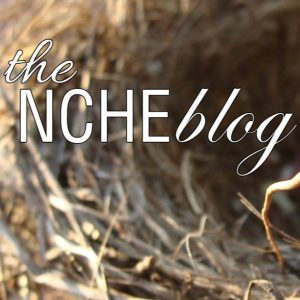While the NCHE leadership was praising God for the Delconte decision, they knew they would soon be in a fight to keep the right to educate their children at home. In the March/April Greenhouse Report (mailed on May 24, 1985) they warned, “…we must be more watchful than ever to protect our freedoms. Already the media, public educationists, and some legislators are saying, ‘now that it’s legal, we need to regulate it.’” In the same issue, NCHE encouraged homeschoolers to work to keep the then current law unchanged, to comply with the law and to keep the quality of instructional programs high. They also advised, “Be ready to drop everything and go to Raleigh at a moment’s notice. The battle is only beginning.”
In July 1985, Claudia Eldridge resigned as NCHE secretary to devote more time to her family. NCHE treasurer Steve Bland temporarily filled in as secretary, and Carolyn Winslow agreed to serve as corresponding secretary. Dr. Raymond Moore had stated that Claudia was “perhaps one of the top half-dozen people in the country in her understanding, commitment and articulate spokesmanship on home education.” After Dr. Moore made that statement and began routing phone calls to her, Claudia was receiving calls not only from all parts of North Carolina but also from many other parts of the United States. When I asked Ned and Claudia about this, Ned said Claudia would get hundreds of calls per week at all hours of the day. Claudia merely demurred, saying she never understood why she had been so elevated by Dr. Moore.
“Senator Dennis J. Winner introduced a bill to set up a study commission on home education. It was tentatively approved and went to the appropriations committee. Members of NCHE went to see Senator Harold Hardison, chairman of the appropriations committee and a powerful force in pushing through the 1979 Private School Law, to let him know that home schools fell under that law, and that the Senate was tampering with it. Senator Hardison promised that the study commission would not be funded. It was not.” 1
December 1985 was a busy month for NCHE. Reverend Terry Manahan resigned as the editor of the Greenhouse Report to pursue a doctor of ministry degree, and Dr. Gerald Van Dyke, an associate professor of botany at NC State University and homeschool father of four, took over the position of NCHE vice president from Mary McLaurin. Also, the NCHE leadership met with Dr. Ed Ulrich of the North Carolina Association of Christian Schools (NCACS), Kent Kelly, president of Christian Schools of North Carolina, former state senator Tom Strickland and Rod Helder of the Governor’s Office of Non-Public Education (now DNPE), to create a draft of a homeschooling bill. After discussing the pros and cons of presenting a bill that would amend the current non-public school law, the officers of NCHE decided to lobby to keep the current law unchanged rather than pursuing a new homeschool bill.
In 1986 Bob and Teena Goble put together plans for NCHE’s second conference on May 9-10. The featured speakers were Richard and Kathy McMinn who were influential in getting a good homeschool law passed in Georgia. The conference was a great success with more than 700 people in attendance. About half of the attendees were considering homeschooling.
Also in May, Larry Cockerham resigned as president because he and his wife, Lavonna, were moving to Cleveland, Tennessee, to pastor a church. A new slate of NCHE officers was elected. They were president, Bill Suttles; vice president for legislative affairs, Walt Goforth; vice president for support services, Bob Goble; secretary, Gerald Van Dyke; treasurer, Susan Van Dyke and newsletter editor, Don Woerner.
About that same time, senior associate superintendent of public schools, Mr. William Peek, sent a document to all superintendents of North Carolina public schools asking them to support legislation that would give the state tight regulation over homeschools. The document said that legislation should be passed to add the following changes to the existing homeschool requirements: 1) Parent teachers must have a college education. 2) The state should set a required course of study. 3) Minimum standardized test scores should be established, and tests should be monitored by qualified personnel. 4) Parents should notify school officials of their intent to homeschool. And 5) “Nonpublic school legislation should be amended to require that each nonpublic school notify the appropriate local board of education of every enrollment and every dropout or dismissal that occurs during the school year. The non-public school should also notify authorities of anyone who does not graduate and does not return the following year.”
“Home educators were branded by state officials as fanatics who were imprisoning their children, not allowing them to come into contact with anyone whose views might be opposed to their own. They were depicted as people who had stepped out of the mainstream of America. Words such as child neglect and child abuse were quoted frequently by the press. State officials claimed that home schools were poorly regulated and would stunt the educational and social growth of children. Editorial columns again carried the cry for regulation of home schools. They listed what was not required of a school rather than what was required, and they described worst case scenarios. One editorial suggested that a functionally illiterate parent could home school, and that this was not so far fetched since “a distressingly high percentage of North Carolinians are functionally illiterate.”2
It was ironic that in claiming so many North Carolina parents, many of whom had received their education in North Carolina public schools, were functionally illiterate, this editorial was condemning the very educational system they were purporting to support.




